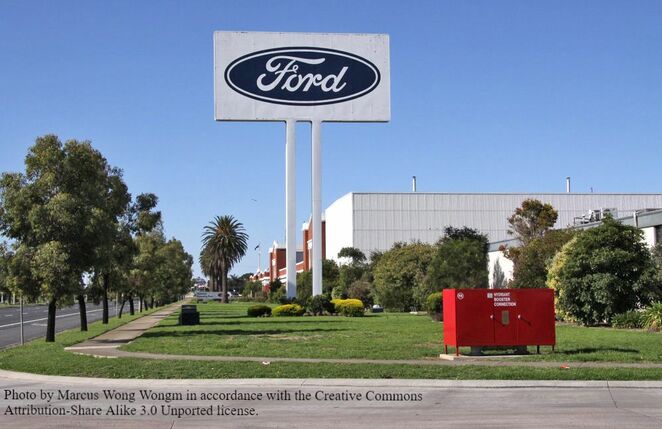Ford lowers financial forecast, highlights challenges in European and Asian marketsDuring the company’s second-quarter earnings call, executives cited multiple issues domestically and abroad as being at fault for the poor performance.
The Ford Motor Co. has lowered its full-year financial forecast, citing domestic and foreign challenges, during the company’s earnings call on July 25. Additionally, CEO Jim Hackett’s global restructuring efforts are estimated to cost $11 billion during the next three to five years.
|
“Candidly, we're extremely dissatisfied with our performance in Europe and China and we had not planned for these types of results,” Hackett said. “We're moving swiftly to stem the negative tide in both of those businesses.”
Hackett mentioned challenges in China and brand recognition in Europe as being the leading factors for issues in the regions. Continuing to address these issues will remain a priority for Ford, Hackett said.
Because of these issues, Ford expects earnings to be cut $1.30-$1.50 a share for 2018, which is down from the originally estimated $1.45-$1.70 per share. Losses are expected in Europe because of higher costs. Asian losses were blamed on an “unfavorable mix” in China and overall lower costs in the region.
During the second-quarter, Ford’s net income was down 48 percent, or $1.1 billion. A fire in a Michigan plant that produces the company’s highly profitable F-series pickup trucks was to blame as a part of these losses in addition to the Asian and European markets. The plant was down for over a week in May and severely crippled production.
Unlike rival General Motors, Ford’s Chief Financial Officer Bob Shanks said that the Trump administration’s tariffs on aluminum and steel were not to blame for the lowering of the forecast. Shanks noted, however, that Ford will be taking a financial hit this quarter because of them, and the company is predicting the tariffs will have an even larger impact in the months to come.
"It was obviously a very tough quarter for us," Shanks said.
The company remains optimistic about the future, citing expansions in its autonomous vehicle research and commitment to electric vehicles. Ford’s stock is down 22 percent year-to-date.
Hackett mentioned challenges in China and brand recognition in Europe as being the leading factors for issues in the regions. Continuing to address these issues will remain a priority for Ford, Hackett said.
Because of these issues, Ford expects earnings to be cut $1.30-$1.50 a share for 2018, which is down from the originally estimated $1.45-$1.70 per share. Losses are expected in Europe because of higher costs. Asian losses were blamed on an “unfavorable mix” in China and overall lower costs in the region.
During the second-quarter, Ford’s net income was down 48 percent, or $1.1 billion. A fire in a Michigan plant that produces the company’s highly profitable F-series pickup trucks was to blame as a part of these losses in addition to the Asian and European markets. The plant was down for over a week in May and severely crippled production.
Unlike rival General Motors, Ford’s Chief Financial Officer Bob Shanks said that the Trump administration’s tariffs on aluminum and steel were not to blame for the lowering of the forecast. Shanks noted, however, that Ford will be taking a financial hit this quarter because of them, and the company is predicting the tariffs will have an even larger impact in the months to come.
"It was obviously a very tough quarter for us," Shanks said.
The company remains optimistic about the future, citing expansions in its autonomous vehicle research and commitment to electric vehicles. Ford’s stock is down 22 percent year-to-date.

